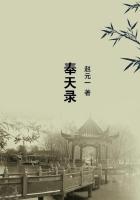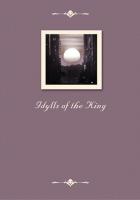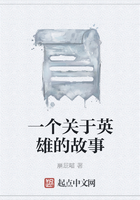HOW THE STRUGGLE BETWEEN THE "DIVINE
RIGHT" OF KINGS AND THE LESS DIVINE BUT MORE REASONABLE "RIGHT OF PARLIAMENT" ENDED DISASTROUSLY FOR KING CHARLES II CAESAR, the earliest explorer of north-western Europe, had crossed the Channel in the year 55 B.C. and had conquered England. During four centuries the country then remained a Roman province. But when the Barbarians began to threaten Rome, the garrisons were called back from the frontier that they might defend the home country and Britannia was left without a government and without protection.
As soon as this became known among the hungry Saxon tribes of northern Germany, they sailed across the North Sea and made themselves at home in the prosperous island. They founded a number of independent Anglo-Saxon kingdoms (so called after the original Angles or English and the Saxon invaders) but these small states were for ever quarrelling with each other and no King was strong enough to establish himself as the head of a united country. For more than five hundred years, Mercia and Northumbria and Wes*** and Sussex and Kent and East Anglia, or whatever their names, were exposed to attacks from various Scandinavian pirates. Finally in the eleventh century, England, together with Norway and northern Germany became part of the large Danish Empire of Canute the Great and the last vestiges of independence disappeared.
The Danes, in the course of time, were driven away but no sooner was England free, than it was conquered for the fourth time. The new enemies were the descendants of another tribe of Norsemen who early in the tenth century had invaded France and had founded the Duchy of Normandy. William, Duke of Normandy, who for a long time had looked across the water with an envious eye, crossed the Channel in October of the year 1066. At the battle of Hastings, on October the fourteenth of that year, he destroyed the weak forces of Harold of Wes***, the last of the Anglo-Saxon Kings and established himself as King of England. But neither William nor his successors of the House of Anjou and Plantagenet regarded England as their true home. To them the island was merely a part of their great inheritance on the continent--a sort of colony inhabited by rather backward people upon whom they forced their own language and civilisation. Gradually however the "colony" of England gained upon the "Mother country" of Normandy. At the same time the Kings of France were trying desperately to get rid of the powerful Norman-English neighbours who were in truth no more than disobedient servants of the French crown. After a century of war fare the French people, under the leadership of a young girl by the name of Joan of Arc, drove the "foreigners" from their soil. Joan herself, taken a prisoner at the battle of Compiegne in the year 1430 and sold by her Burgundian captors to the English soldiers, was burned as a witch. But the English never gained foothold upon the continent and their Kings were at last able to devote all their time to their British possessions.
As the feudal nobility of the island had been engaged in one of those strange feuds which were as common in the middle ages as measles and small-pox, and as the greater part of the old landed proprietors had been killed during these so-called Wars of the Roses, it was quite easy for the Kings to increase their royal power. And by the end of the fifteenth century, England was a strongly centralised country, ruled by Henry VII of the House of Tudor, whose famous Court of Justice, the "Star Chamber" of terrible memory, suppressed all attempts on the part of the surviving nobles to regain their old influence upon the government of the country with the utmost severity.
In the year 1509 Henry VII was succeeded by his son Henry VIII, and from that moment on the history of England gained a new importance for the country ceased to be a mediaeval island and became a modern state.
Henry had no deep interest in religion. He gladly used a private disagreement with the Pope about one of his many divorces to declare himself independent of Rome and make the church of England the first of those "nationalistic churches" in which the worldly ruler also acts as the spiritual head of his subjects. This peaceful reformation of 1034 not only gave the house of Tudor the support of the English clergy, who for a long time had been exposed to the violent attacks of many Lutheran propagandists, but it also increased the Royal power through the confiscation of the former possessions of the monasteries. At the same time it made Henry popular with the merchants and tradespeople, who as the proud and prosperous inhabitants of an island which was separated from the rest of Europe by a wide and deep channel, had a great dislike for everything "foreign" and did not want an Italian bishop to rule their honest British souls.
In 1517 Henry died. He left the throne to his small son, aged ten. The guardians of the child, favoring the modern Lutheran doctrines, did their best to help the cause of Protestantism.
But the boy died before he was sixteen, and was succeeded by his sister Mary, the wife of Philip II of Spain, who burned the bishops of the new "national church" and in other ways followed the example of her royal Spanish husband Fortunately she died, in the year 1558, and was succeeded by Elizabeth, the daughter of Henry VIII and Anne Boleyn, the second of his six wives, whom he had decapitated when she no longer pleased him. Elizabeth, who had spent some time in prison, and who had been released only at the request of the Holy Roman Emperor, was a most cordial enemy of everything Catholic and Spanish. She shared her father's indifference in the matter of religion but she inherited his ability as a very shrewd judge of character, and spent the forty-five years of her reign in strengthening the power of the dynasty and in increasing the revenue and possessions of her merry islands.















